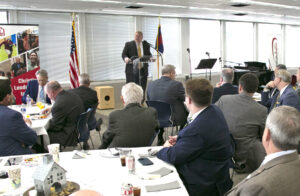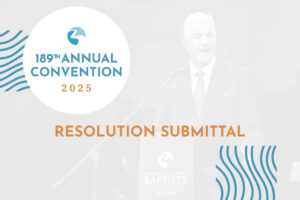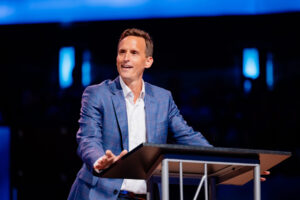But Whoever Drinks • John 4:11-26
By Rick Henson

The woman was thirsty, so she journeyed to Jacob’s well where people from miles around drew water daily. The story tells us that she not only was physically thirsty but parched spiritually, though unaware of the thirst for God in herself.
After they met, Jesus spoke of living water and she said she wanted it, thinking he spoke of physical water. Like in the previous chapter where Nicodemus was thinking only of the physical, the woman at the well also focused on the physical. Jesus confronted both of them with spiritual truth.
Eventually the topic turned to worship, as the woman asked Jesus about an age-old conflict on where to worship — at the Temple in Jerusalem or the mountain in Samaria. Jesus revealed that the time would soon come when people would worship in spirit and not only in person.
While the Old Testament reveals how God dealt with nations and people groups, the New Testament unveils how the Father works in individuals, saving those who repent and call on His name.
Jesus confronted the woman about her sin. He knew she was living with a man not her husband. Understandingly, she grew defensive. As with the woman taken in adultery in John chapter eight, Jesus confronted but did not condemn.
Jesus twice said, “I tell you, Nay: but, except ye repent, ye shall all likewise perish” (Luke 13:4-5 KJV). He had already demonstrated his love by reaching out to the Samaritan woman in the first place, a person rejected by the pious Jews of the day because of her sin and her despised Samaritan heritage.
The Apostle John frequently uses amazing imagery as he tells the events of Jesus. Notice that when the woman ran to tell the townspeople about her encounter with the Savior, she left her water pot there (John 4:28 KJV). She may have been thirsty when she came, but her thirst had been quenched by Jesus as symbolized by the abandoned water pot.
Later in John 7:37-38, Jesus said, “If any man thirst, let him come unto me, and drink. He that believeth on me, as the scripture hath said, out of his belly shall flow rivers of living water” (KJV).
When the woman went to tell everyone about her encounter with the Messiah, the people wanted to see what she had seen. Her excitement spread to others and Scripture says everyone came to see of whom she spoke. After the people met Jesus, they begin to believe from their own experience.
The townspeople even said to her that they first believed because of what she told them, then because of what they had seen. Isn’t this the heart of witnessing?
Jesus taught, “Whoever believes in me, as the Scripture has said, ‘Out of his heart will flow rivers of living water.” When Jesus gives each of us the living water, He desires that it overflows on those around us just as in this story.
When we share our faith, others will investigate what we believe and then it becomes their faith, too. This unmarried woman previously living in sin became a most unlikely evangelist. You may believe you are unworthy to share the Good News of Jesus — and you are right. Yet God used this woman to reach and entire village after she simply told what she has seen. He can accomplish the same with us in our modern world.
Share your faith and let the Lord work in hearts.
Henson is minister of outreach and evangelism at Bethel Church, Brandon.








